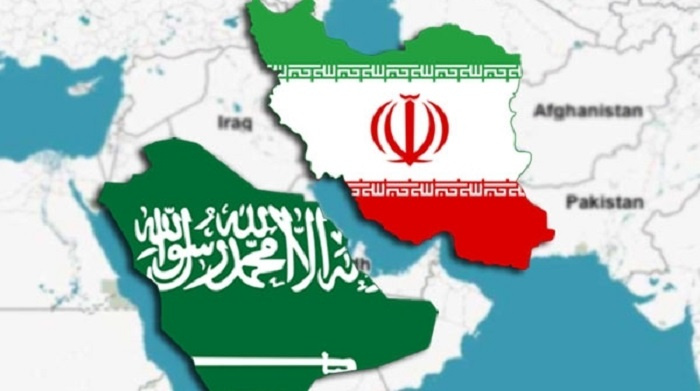Path to Iran-Saudi Détente

The developments of the past few days regarding relations between Iran and Saudi Arabia have raised a question in the minds of the Iranians and foreign research institutes who follow these developments: could these measures be considered as the beginning of movement on the path towards détente between these two countries? Considering the change of balance in the region and the atmosphere which was created after the effective role played by Dr. Zarif in the two previous Vienna Conferences on Syria, the Saudi government is faced with new conditions.
The hope to reach a conclusion in the international community with regard to the importance of the real fight against the Takfiri terrorist groups and continuation of the Syrian government until elections and giving the people of Syria the right to determine their fate, in a free election, are different from what Saudi Arabia had in mind and pursued.
With regard to the issue of Yemen, the Saudis did not achieve their desired objective and the prolongation of the war has not left any option except to agree on the political resolution of the dispute between the involved parties. Furthermore, prolongation of unfriendly behaviors of Saudi officials with Iran and its failure have also been considered by the Saudi government. The sum of these elements has caused Saudi Arabia to believe that it cannot safeguard its national interests through war, hostility and tension.
I have stressed in my previous analyses that the issues of the Middle East have three levels: international, regional and domestic. Today’s international atmosphere demands, more than any other time, interaction between Iran and Saudi Arabia in order to reduce the existing damages in the region and even the world. A similar view exists even among some Arab states of the region. The internal atmosphere of regional countries has caused their public opinion to welcome effective diplomatic dialogue.
Along this line, the recent positive position of Saudi Arabia’s Foreign Minister and the introduction of their new ambassador to Tehran cannot be ignored. The freefall of oil prices and the remarks of the Saudi Oil Minister regarding Iran’s right to use its production share after the implementation of the JPOAC and the crises which have been created between Turkey, Iraq and Russia have further complicated the issues of the region.
Under these conditions, Saudi rulers who have become wiser and more prudent compared to the first days of King Salman’s rule and have seen the failure of their tension-creating policies send positive pulses to Iran. Saudi Arabia knows well that if articles are written in the media of Iran and Turkey with regard to the relations between the two countries, Iran and Turkey are bound to cooperate in the strategic issues of the region. Special human geography in northern regions of Iraq, Syria and southern Turkey, the issue of the Kurds and the spread of insecurity in the region will lead Iran and Turkey to have cooperation, as the two powerful countries of the region, in order to prevent the spread of insecurity. Iran is ready to enter the post-JPOAC era and the lifting of sanctions and reduction of oil prices pose a threat to all oil-producing countries including Iran and Saudi Arabia. Considering the existing social power in Iran and the solidarity of public opinion on national issues, it was clear that, despite the damages on the economic lives of the people, sanctions would not have serious impacts on the government of Iran. All these experiences will lead Saudi Arabia and other countries of the region towards regional realism.
Of course, this is the beginning of the road and would not mean that the issues would soon be resolved. There are so many differences between the two countries which must be discussed; from the catastrophe in Mina to the obstacles created in the process of nuclear negotiations and explanations about Iran’s regional objectives and that Iran does not seek sectarian and tribal wars against Saudi Arabia and other countries. What is important is that through dialogue solutions will be found for each one of these issues. The negotiations between Dr. Zarif and his team and the six world powers proved that one cannot hope for the resolution of the problems first and then begin dialogue. We do not live in a separate world. The realities of today’s world necessitate diplomatic solutions through win-win policies and Iran and Saudi Arabia can also pursue this policy to resolve their differences.

